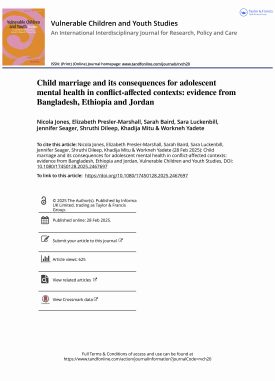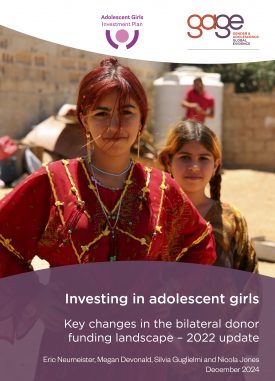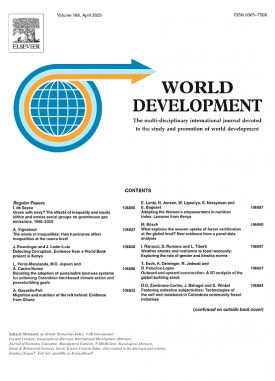The COVID-19 pandemic and associated policy responses have interrupted services, increased financial stress, and driven social isolation, with acute impacts for adolescents. This study explores relationships between gender, COVID-19 vulnerability, social protection, and adolescent wellbeing in three diverse contexts: Ethiopia, Jordan, and Palestine.
For all adolescents, increased vulnerability to COVID-19-related shocks is associated with worse outcomes for resilient coping and time spent on domestic tasks and care work. Across samples, girls spent over two additional hours on domestic and care work compared to boys. Girls in more vulnerable households experienced greater gendered constraints on behaviour.
We find no association between receipt of social protection and adolescent wellbeing, and find that it only moderates the effect of COVID-19 vulnerability for less vulnerable households. Disability status, being out of school, and experiencing child marriage are also associated with adverse outcomes. Our study highlights that the pandemic has exacerbated underlying gender inequalities across adolescents in three very different settings, and that existing social safety nets are not adequate to fully address these impacts, particularly for the most vulnerable.
Suggested citation:
Oakley, E., Abuhamad, S., Seager, J., Avuwadah, B., Hamory, J., Jones, N., Małachowska, A., Yadete, W., Abu Hamad, B., Baird, S. (2022) ‘COVID-19 and the gendered impacts on adolescent wellbeing: Evidence from a cross-sectional study of locally adapted measures in Ethiopia, Jordan, and Palestine’ eClinicalMedicine (https://doi.org/10.1016/j.eclinm.2022.101586)


